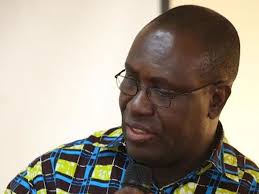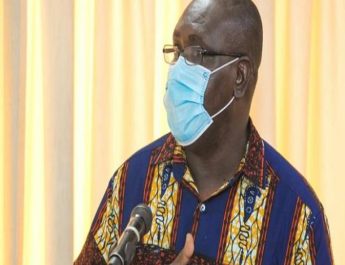As usual, we followed the presentation of the State of the Nation’s Address by the President Nana Addo Dankwa Akufo-Addo with keen interest. We would like to congratulate the President for fulfilling this constitutional mandate and for the comprehensive review of the true state of the nation. The address touched on all the important issues of concern to workers and the people of Ghana. We have noted all the progress that the government has made on the macroeconomic front. In particular, we recognize the remarkable GDP growth from 3.6 percent in 2016 to 7.9 percent in 2017; the reduction in the fiscal deficit, the declining inflation rate; reduction in debt to GDP ratio; the clearance of arrears to the statutory funds including the transfer of more than GH₵ 3 billion of second tier pension funds. A careful reading of the address leaves one in no doubt that macroeconomic management has improved significantly. According to the President, 2018 could be exciting as the economy is projected to grow even faster. The President mentioned the progress government has made in the last one year in the area of employment creation. He mentioned the Nation Builders Corps programme which is expected to create 100,000 jobs for university graduates, the Entreneureship Programme by the Accra Digital Centre in collaboration with Ecobank Ghana Limited, among other important employment creation initiatives. These initiatives are commendable. However, as we have noted in the past, the sustainable way to cure joblessness rests ultimately with the private sector. The private sector will be central in the effort to reduce unemployment in the medium to long-term. We know that the private sector is currently not in the best shape to take on this herculean task. The policy environment continues to undermine the growth of the domestic private sector and constrain its ability to offer sustainable employment. 2 Cost of borrowing remains unreasonably high, despite the declining inflation. This makes business expansion difficult. Our markets continue to be flooded with imports often produced with huge amount of subsidies. Our local products are not able to compete even on the domestic market. It is not entirely true that domestic industry is inefficient. The truth is that the private sector in Ghana is unduly exposed to unhealthy competition. Government must reform the trade policy and make it truly business friendly. We expect more initiatives to support the private sector. In the statement TUC issued after the 2018 Budget Statement was presented to Parliament, we emphasized the need for employment data. But, like previous governments, this government did not take it seriously. The response the President gave to a question on employment statistics during his recent interaction with journalists was a clear indication of the degree of importance government attaches to employment statistics. The President is famously reported to have said that “I don’t know statistics on jobs created”. Many Ghanaians were stunned by this answer. For those of us in the TUC we were not surprised. In fact, it is an honest admission by the President. No such statistics exist. The TUC would have been surprised if the President had mentioned any figures about jobs created in the last one year of his administration. That would have been pure conjecture by the President. The question is: why would the President not have statistics on employment, even though he was elected based, mainly, on his party’s promise to create millions of jobs for Ghanaians? The President has at his disposal the Ministry of Employment and Labour Relations with other agencies including the Labour Department whose mandates include collecting and analysing employment statistics. There is also the Ghana Statistical Service (GSS). We can only imagine how the President felt when he publicly admitted that despite all the audacious promise he made about solving the unemployment crisis, his government did not have any figures to show any progress at all, however little. After so many years of engaging the policy-making process, we have come to a firm conclusion that employment creation disappears from the priority list of politicians once political power is won. In opposition, our politicians have a better appreciation of the employment challenge confronting the country. Employment creation is often at the top of their priorities during election campaigns. In many respects opposition politicians win power primarily because they tend to have right message on jobs and those in government often fail to address the employment concerns of voters. Once power is won, priorities of politicians change. They buy into the unexciting mantra of macroeconomic stability, thinking that once macroeconomic stability is achieved, the economy will grow and employment creation will follow automatically. Employment creation is seen as a residual of macroeconomic stability and economic growth. This has been the main feature of economic management in Ghana since the mid1980s when the infamous structural adjustment programme was implemented. 3 The false belief that employment creation will automatically follow economic growth has meant that our policymakers no longer have to set employment target, let alone measure employment. It is taking for granted that once the economy was growing employment is being created. The managers of the economy therefore do not care to investigate the impact of their policies on employment. A Deputy Minister of Finance, Honourable Kweku Kwarteng (MP) is reported to have said that government policies can go ahead without employment data. This clearly shows the attitude of our policymakers on employment creation once they are in government. Why wouldn’t government policies go ahead without inflation data? Why does government compile and publish inflation data every month but not employment data? Since priorities change after elections and employment is relegated to the background, the state institutions that are in charge of collecting, analysing and publishing employment statistics are denied funding that is critical for generating employment data. The Ghana Statistical Service, for example, stopped publishing employment data in its monthly statistical bulletin as far back as 1991. Meanwhile, the Service has the funding to collect and publish inflation data on a monthly basis. It cannot provide data on employment even on annual basis because of lack of funding for that purpose. The neglect of employment has been so glaring that even when the Budget and Economic Policy Statement of government has the theme “Sowing the seeds for Growth and Jobs”, as in 2017, the managers of the economy failed to set targets for the jobs. They only remembered to set targets for growth and other variables such as inflation and budget deficits. The neglect of employment by government is further exemplified by underfunding of the Ministry of Employment and Labour Relations and all of its agencies. For the 2017 fiscal year, the Ministry of Employment and all its agencies were earmarked to receive GHC60.7 million for their operations. This represented 0.001 percent of the total appropriation bill and 0.04 percent of the allocations to the presidency. In Dollar terms, the 2017 allocation to the Ministry was about US$13.1 million compared to a budgetary allocation of the Ghana Cedi equivalent of about US$23 million in 2009. In the last couple of years, the TUC has made several submissions to government in which we have consistently called for a change of attitude and policies towards employment creation. In our proposal we submitted for consideration in the 2017 budget we had the following to say about employment statistics: “Ghana Statistical Service, which provides employment and other labour market data, suffers similar neglect, in terms of access to funds from Government of Ghana. The lack of up-to-date and accurate information on employment is a good indication of the 4 neglect the GSS is suffering. If employment is so important, why is it that the most recent data on employment is found in the employment module of the Ghana Living Standards Survey conducted in 2012/13?” We repeated the call for employment data in our proposal for the 2018 budget as follows: “We also expect government to resource the Ghana Statistical Service to provide up-to-date and accurate information on employment. Real time statistics provide a better way to evaluate the impact of government policies and programmes on employment creation.” As in previous years, government has ignored our calls. It is no wonder that we do not have employment data and the employment challenge continues to grow even in the face of consistent economic growth. The President can easily avoid the discomfort and embarrassment associated with having to admit that his government has no figures on employment by providing financial and other resources to the Ghana Statistical Service, universities and other research institutions to generate and publish employment statistics at least once or twice every year. We would like to assure government that the TUC and its affiliates operating in all the sectors of the Ghanaian economy are ready to support policies and programmes that will create jobs and ensure prosperity for all Ghanaians in all parts of the country. We will continue to work with government and other social partners to maintain the current industrial peace. We urge government to reconstitute the boards of the National Labour Commission (NLC), Fair Wages and Salaries Commission and National Pensions Regulatory Authority (NPRA) without further delay. These institutions play very important roles in labour administration in Ghana. Government must also invest in these institutions so that they can be empowered financially to help keep peace and harmony for faster economic growth and social development. [SIGNED] DR. YAW BAAH SECRETARY GENERAL 9TH FEBRUARY, 2018 ACCR
Breaking News:
- TUC-Ghana Elects New Leadership at 12th Quadrennial Delegate Congress
- Secretary-General’s Plenary Speech in the ongoing 112th Session on the International Labour Conference
- ORGANISED LABOUR PRESS STATEMENT ON THE IMPOSITION OF VALUE ADDED TAX (VAT) ON RESIDENTIAL CUSTOMERS OF ELECTRICITY
- TUC and others donate to North Tongu flood victims
- Redesign Reward Systems to Match Employee Productivity- TUC



